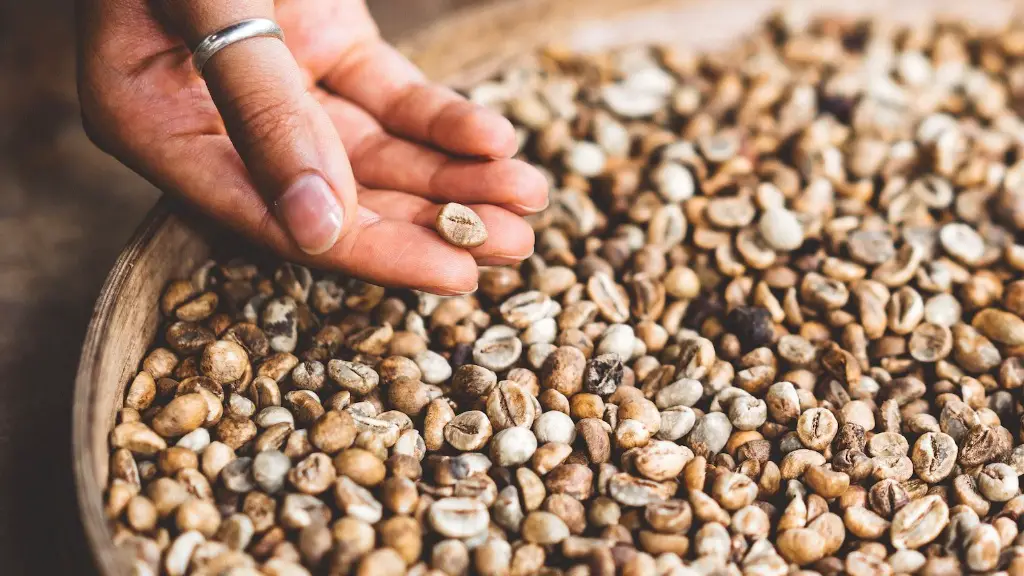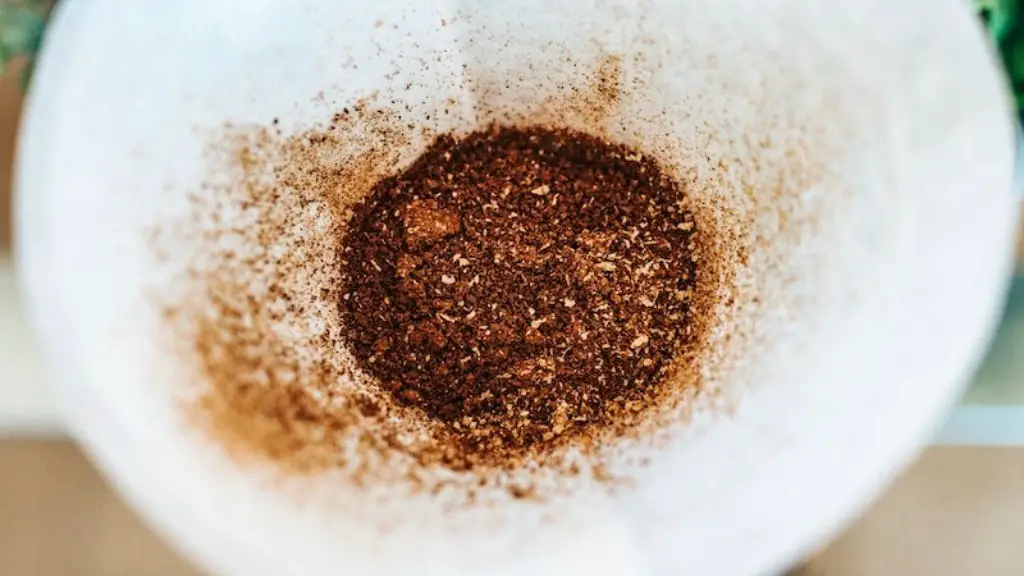Intermittent fasting is becoming increasingly popular in recent years as a way to lose weight, improve heart health, and other health benefits. There is much debate as to whether or not you can drink coffee while intermittent fasting to get the most out of the diet. Generally, the answer is yes, though there are exceptions.
According to Professor Steve Bell, an obesity specialist at the University of Exeter Medical School, drinking coffee while intermittent fasting can still be beneficial. He states, “Coffee, when consumed in moderation, can help boost concentration and alertness, as well as aid in calorie reduction. But it should be noted that some people find that coffee can make them hungrier, which could have a negative impact on weight loss goals.”
Dr. Joshua Strauss, a family practice physician who specializes in nutrition and lifestyle modification agrees. He explains, “Coffee can be a beneficial part of an intermittent fasting regimen, as the caffeine can help to suppress hunger and higher doses of coffee can even reduce calorie intake. However, those wishing to practice intermittent fasting should still limit their intake of coffee and practice caution when consuming larger amounts, as coffee can have a diuretic effect and may reduce the body’s ability to absorb nutrients.”
Additionally, if you are sensitive to caffeine, then drinking coffee while following an intermittent fasting regimen is not recommended. A study conducted by the University of California, Berkeley found that those who are sensitive to caffeine experience an increase in anxiety and agitation when drinking coffee. Therefore, it is important to be aware of how coffee affects your body before drinking coffee while fasting.
Overall, drinking coffee while intermittent fasting can provide some health benefits as coffee can be a great source of energy, aid in calorie reduction, and suppress hunger, allowing for a more successful fasting period. Though there are exceptions to this, most people can enjoy drinking coffee while intermittent fasting.
Does Coffee Break Your Fast?
Whether or not coffee can break your fast has long been a subject of controversy and debate among experts and enthusiasts alike. Generally speaking, coffee that is free of any added ingredients, such as cream or sugar, should not break your fast and can even provide some health benefits. That said, if you do not typically consume coffee or if you are sensitive to caffeine, then it is best to avoid coffee while intermittent fasting to avoid any possible negative side effects.
In addition, if you do choose to drink coffee while fasting, it is best to consume it black with no added sugars or cream, as these ingredients may cause your body to break the fast. On the other hand, if you are looking for added energy, then black coffee may not be enough, in which case adding some cream or non-caloric sweetener to your morning cup may not significantly decrease the effectiveness of the fast.
Overall, coffee can be a great source of energy and can help to suppress hunger while intermittent fasting. Whether or not coffee will break your fast ultimately depends on the individual, though generally speaking, plain black coffee should not disrupt a fasting period. Abstaining from caffeine completely is typically the safest way to go, however if you wish to try it, just be sure to pay close attention to how your body responds and practice caution.
Should You Drink Coffee Before or After Fasting?
When it comes to intermittent fasting, there is no definitive answer as to whether or not you should drink coffee before or after your fast. Generally speaking, drinking coffee before a fast can be more beneficial as it can help to suppress hunger and keep energy levels up during a fast. However, because of the caffeine content in coffee, it is best to limit your intake to just one or two cups throughout the day.
On the other hand, drinking coffee after you have already fasted can help to break the fast and replenish some of the energy that was lost during the fasting period. Additionally, drinking coffee after a fast can help to boost the metabolism and make way for a more successful fast the following day. With that said, it is important to remember that drinking too much coffee, either before or after a fast, can cause jitteriness and anxiety, so it is best to practice moderation and consume coffee in moderation.
Ultimately, the decision of whether to drink coffee before or after a fast is up to the individual and should be aligned with their fasting goals. Consuming coffee in either situation can provide some health benefits and can help suppress hunger and provide energy, though it is important to pay attention to how your body responds to caffeine and practice caution when consuming it.
What Are the Benefits of Drinking Coffee While Intermittent Fasting?
There are several potential benefits to drinking coffee while intermittent fasting. Firstly, coffee can help to suppress hunger and reduce the risk of overeating, which can be especially helpful when trying to stick to intermittent fasting goals. Additionally, drinking coffee can help to boost the metabolism and improve concentration and alertness, making it easier to stay focused throughout the fast.
Further, coffee’s diuretic effect can help to flush toxins out of the body, which can improve overall health. Finally, given that coffee is a low-calorie beverage, it can help to reduce total calorie intake, making it easier to achieve and maintain weight loss goals.
When it comes to intermittent fasting, it is important to be aware of how coffee affects your body and practice moderation. Generally speaking, coffee can provide some health benefits when consumed in moderation, and so it can be a great choice for those looking to reap the full benefits of the intermittent fasting diet.
What Are Some Alternatives to Coffee While Intermittent Fasting?
If caffeine is not your cup of tea, then there are some other options that can provide the same benefits while intermittent fasting. For one thing, drinking herbal teas such as green tea has been shown to boost metabolism and provide a variety of health benefits. Additionally, many herbs such as ginseng and ginger are known to aid in regulating blood sugar and suppressing hunger. You can also try adding fresh fruit to your diet for a healthy source of natural energy as well as essential vitamins and minerals.
Further, adding some healthy fats, such as nuts and seeds, to your diet during a fast can help to reduce hunger and provide essential nutrients. Lastly, drinking plenty of water can help to flush out toxins, keep you hydrated, and provide a feeling of fullness, making it easier to stick to your fast.
Overall, there are a variety of alternatives to coffee that can help provide the same benefits while intermittent fasting. While coffee can be helpful in suppressing hunger and providing energy, it is important to be aware of how caffeine affects your body and practice caution when consuming it. Therefore, it is best to opt for other, healthier alternatives to ensure the best results when intermittent fasting.
What Are the Risks of Drinking Coffee During Intermittent Fasting?
Though drinking coffee in moderation can be beneficial, there are still some risks to be aware of when consuming coffee while intermittent fasting. The most obvious risk is possibly breaking the fast. Because of the caffeine content in coffee, drinking too much can cause your body to break the fast and undo any progress made. Additionally, it is important to be aware of how caffeine affects your body before drinking coffee, as those sensitive to caffeine may experience difficulty sleeping, irritability, increased anxiety, and other negative side effects.
Further, consuming too much caffeine can also have a diuretic effect and lead to dehydration, which can cause lightheadedness, fatigue, and other health problems. It is also important to remember that coffee can be addictive, and so consuming it in moderation is key. Lastly, if you consume coffee with added sugars or cream, then this can also break your fast and reduce the efficacy of an intermittent fasting regimen.
In conclusion, drinking coffee while intermittent fasting can be beneficial in many ways, including reducing hunger, boosting metabolism, and providing energy. That said, it is important to be aware of how caffeine affects your body and practice moderation in order to gain the most out of an intermittent fasting routine. Opting for some of the alternatives to coffee is also a great way to reap the full benefits of intermittent fasting.




